The killer bee subgenre of ecological horror films was kicked off in the 1970s with such films as Killer Bees and Savage Bees, but over in Great Britain, they got a jump on things with a film based on H.F. Heard's 1941 novel "A Taste for Honey," a story that took a Sherlockian approach to the threat of killer bees, where a strongly implied elderly Sherlock Holmes would take on a surrealistic case about three men connected through bees, honey and murder.
The interesting thing to take note of when watching The Deadly Bees, is that, unlike the later killer bee movies of the 1970s, this one takes on the aspect of an Agatha Christie or Sherlock Holmes murder mystery with the only key ingredient missing being the presence of an astute detective like Miss Marple, Hercule Poirot or Sherlock Holmes, so instead of a luminescent hound terrorizing the Baskervilles we get a madman with the ability to control killer bees, which one must admit, sounds pretty cool. The film opens with two men from an unnamed ministry commenting on a recent letter from a man claiming to have bred killer bees – these guys could be from Scotland Yard because they are about as useful as the ones found in your typical Sherlock Holmes story – and despite the fact that this letter claims that the writer will start killing people if he is not taken seriously, the senior member of this pair dismisses the author as a crackpot.
“But sir, isn’t investigating the threat of murder kind of our job?”
Meanwhile, over at BBC One, pop sensation Vicki Robbins (Suzanna Leigh) collapses from exhaustion during a television broadcast resulting in her doctor (Frank Forsyth) recommending two weeks of rest and relaxation at the residence of an old friend of his, one Mister Ralph Hargrove (Guy Doleman), who has a cottage on Seagull Island which is, of course, where that threatening letter was mailed from. Needless to say, poor Vicki doesn’t get much in the way of rest or relaxation on this "vacation" because before you can say “The game is afoot” she’s up to her ears in murder and is forced to put on her big girl panties to investigate. Unlike your typical Agatha Christie mystery we are not inundated with a lot of suspects, in fact, we really only have two to speak of. First, we have Ralph Hargrove himself, a beekeeper who has a rather strained relationship with his shrewish wife Mary (Catherine Finn), and then there is the rival beekeeper H.W. Manfred (Frank Finlay) who seems quite interested in helping Vicki solve the mystery when the Hargrove dog is killed by bees and then little Mrs. Hargrove is stung to death as well.
“No, not the bees!”
Evidence against Ralph Hargrove:
• He’s a rather disgruntled beekeeper and while this is an unsubstantial piece of evidence to be sure, we are looking at bee-related killings.
• Ralph Hargrove hated the dog and kicked it when it was snuffling around the barn, where Hargrove may have been experimenting on his horse. Could the dog have unknowingly discovered a clue?
• The farm is actually owned by Mrs. Hargrove and with her out of the way he not only gets the insurance money but he inherits the farm for himself.
• While Vicki snoops around the Hargrove home we get numerous shots of good ole Ralph skulking about watching her.
Nothing suspicious about this guy.
Unfortunately, this is all a red herring and good ole Ralph is nothing more than a crotchety dude who has somehow caught the eye of local barmaid Doris Hawkins (Katy Wild) and nothing more – their “relationship” was obviously introduced to give Ralph more motive to kill his wife but while it’s made clear that Doris is romantically interested in Ralph we don’t see any reciprocated feelings coming from him, he just seems really interested in his bees – what we do have is Manfred constantly feeding the fuel of suspicions to Vicki against Hargrove and her not being able to see that maybe a beekeeper rival, one who claims to control bees via audio-recordings of the death's-head moth, which hypnotizes them, should be a major red flag against Manfred. Oh, did forget to mention that Manfred’s parlour has a panel that opens to reveal an enclosed beehive?
“Oh, this? Why that’s just a convenient way to keep my honey fresh.”
Stray Observations:
• This film opens with a performance by the British pop group The Birds and one can only think of the missed opportunity this was for Alfred Hitchcock in not including them in his “Nature Attack” movie.
• That a married middle-aged beekeeper is considered “sexy” by the island’s cute barmaid is about as problematic as someone developing an apiary of trained killer bees.
• This film doesn’t use the expected threat of the African killer bee, instead, it has the villain breeding his own larger and more deadly strain of bee, and though this makes little to no scientific sense this doesn’t stop it from being an interesting take on the killer bee scenario.
• A man on a tiny English island claims he is going to use bees to commit murder yet when a person on that very same island is killed by bees the police chalk it up to coincidence. I guess the idea of interrupting teatime to actually do their jobs would be too much to ask of these officers of the law.
• Vicki is a terrible spy, having been asked to search Hargrove’s desk for incriminating evidence she bumbles around his office, has problems with her camera, and is then forced to make off with the documents.
She’s certainly no James Bond or even a Nancy Drew for that matter.
A movie about killer bees by the author of Psycho must have sounded like a winner, with nature’s fury replacing Anthony Perkins in drag, but that wasn’t quite the movie we ended up with, instead, we were subjected to actors flailing around with plastic bees glued to their faces in a strangely familiar Agatha Christie setting. Screenwriter Robert Bloch blamed the film's poor showing on the fact he wrote it for Christopher Lee and Boris Karloff, who had starred in the episode "Sting of Death" for the BBC series The Elgin Hour, which was also based on the novel "A Taste of Honey," and while almost any film could be improved by the inclusion of Lee and Karloff I’m not sure how much better The Deadly Bees would have been with these icons of horror on board. While this film may be missing those horror legends we do get a scantily clad heroine being threatened in her bathroom, something right up Robert Bloch’s alley.
All that’s missing is Bernard Herman’s strident violin stings.
Bloch claims that the Amicus producers put the script in the hands of director Freddie Francis and new writers which resulted in the screenplay being “improved” past recognition, and if he is to be believed this would explain why the whole production seems like an inconsistent tonal mess. We never really care about the characters or actually feel the threat of the bees in any way and when your movie is about killer bees that’s a pretty big failure. Not to mention how bad the special effects used to depict the attack were, we're talking so bad that it makes the later made-for-television killer bee movies look like masterpieces of the craft by comparison. Overall, The Deadly Bees is a bizarre Agatha Christie pastiche that was only interesting due to the premise of trained killer bees as tools for murder, sadly, that premise was very underutilized and the end product turned out rather dull.
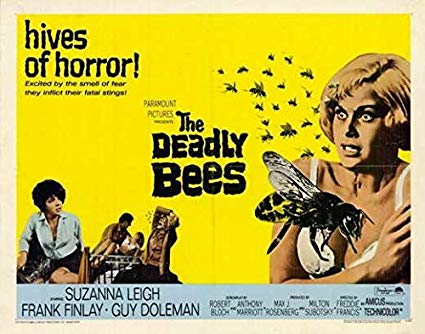
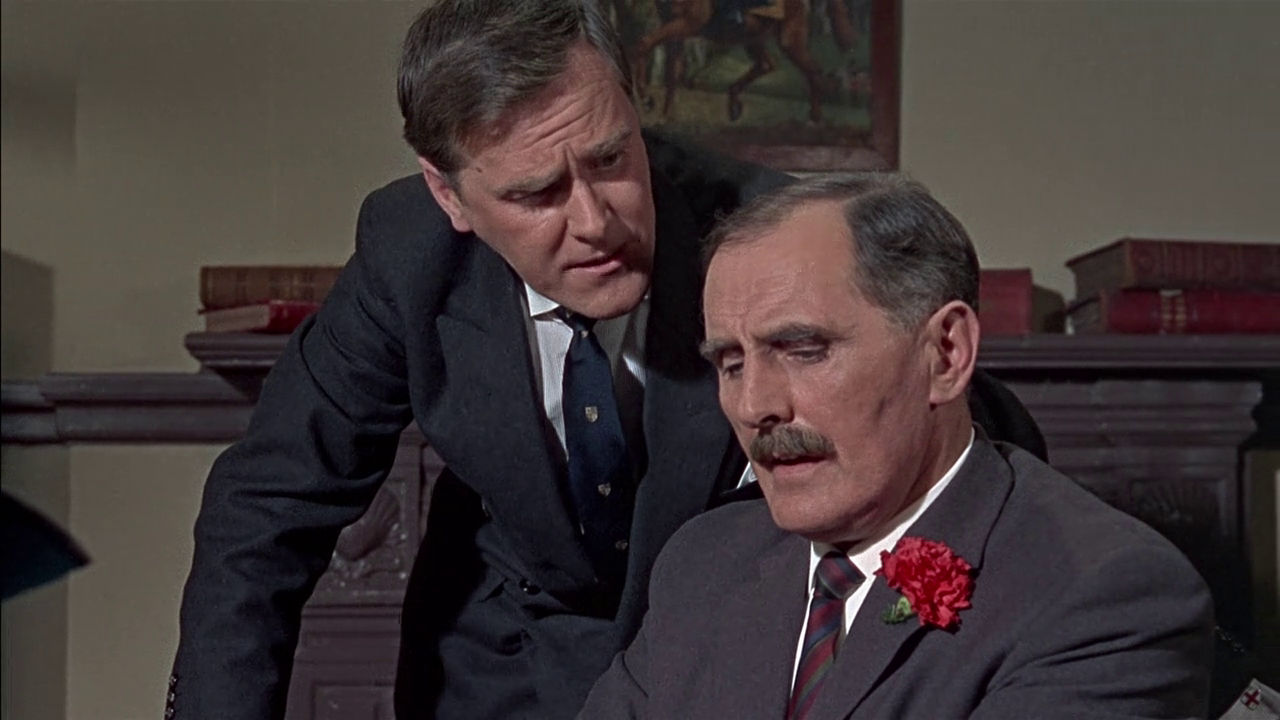
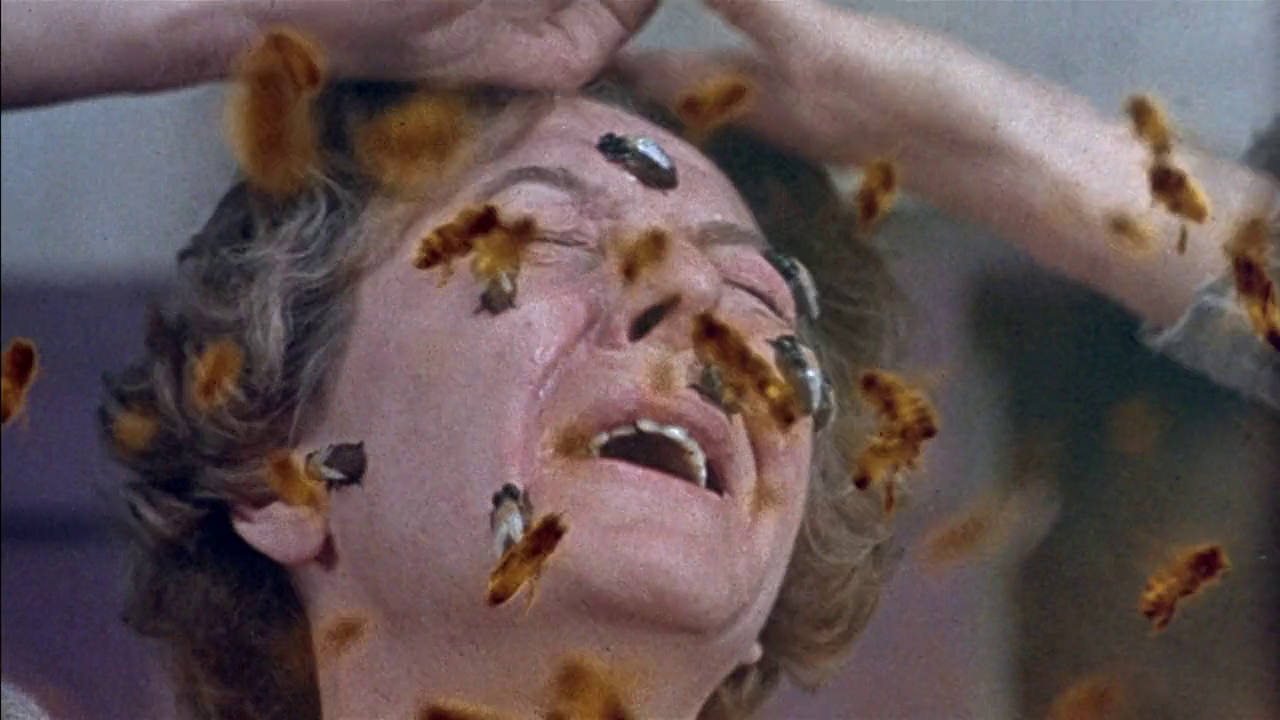
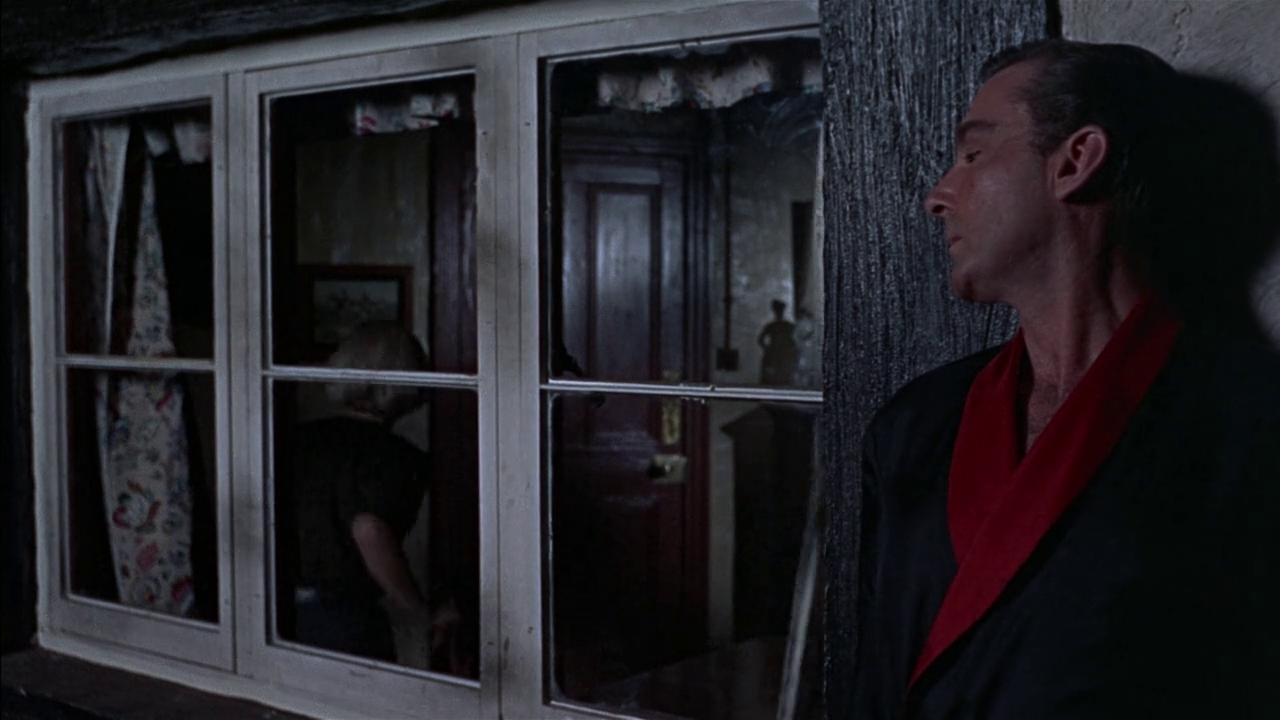
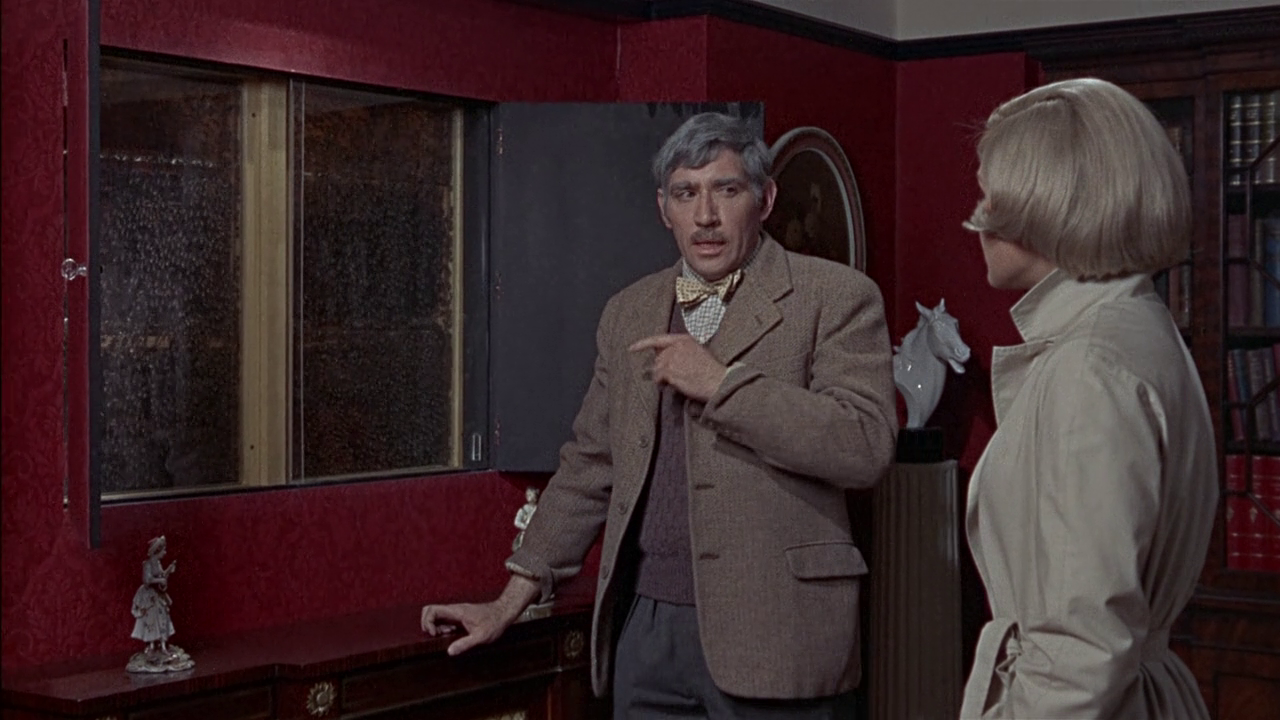
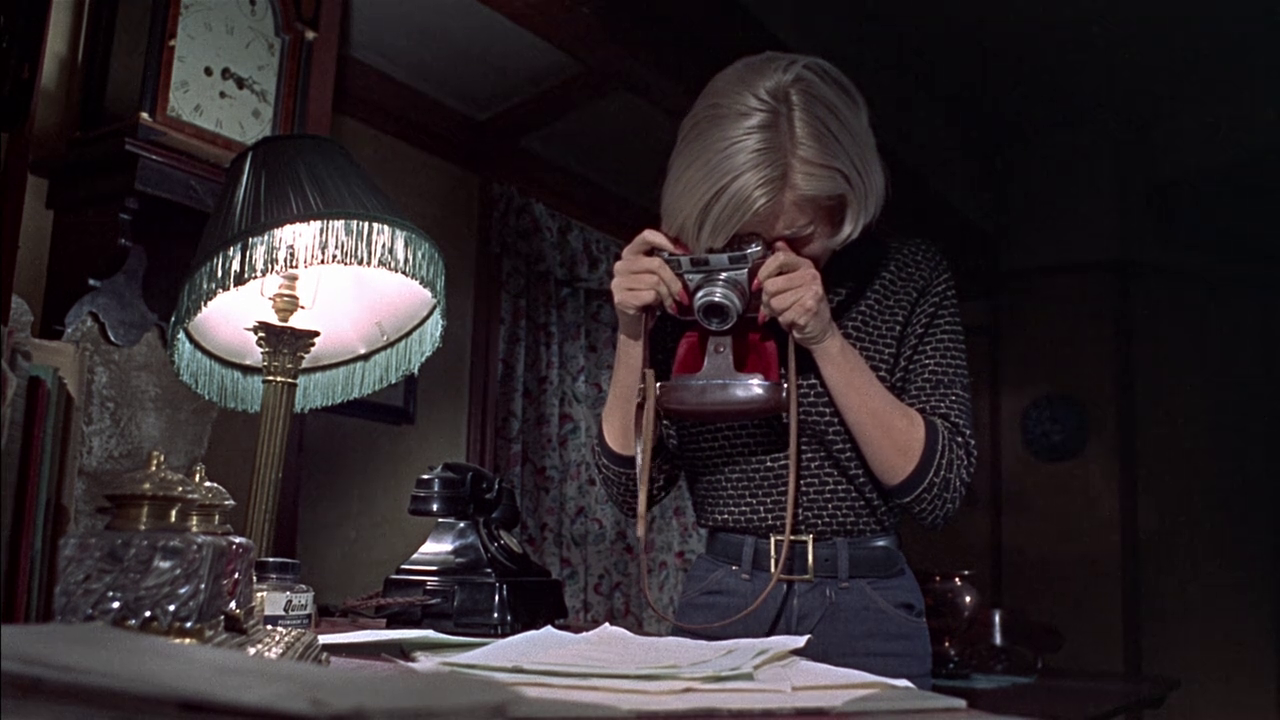
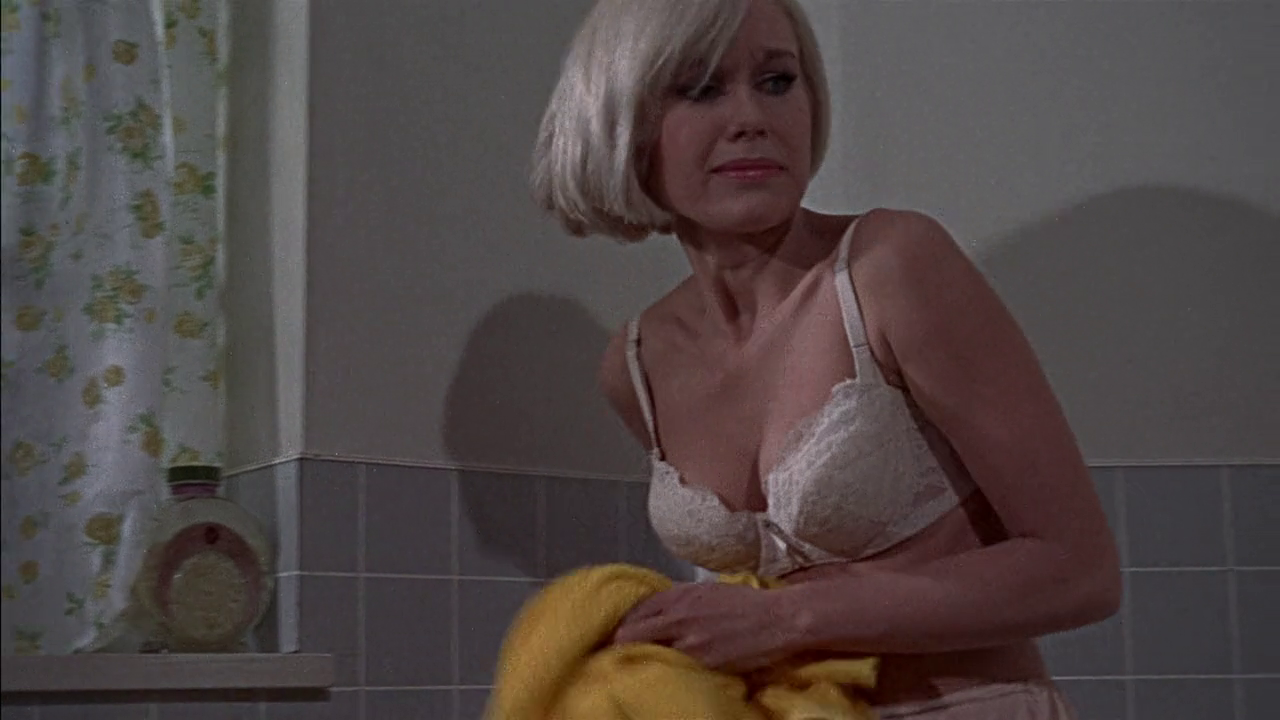

No comments:
Post a Comment